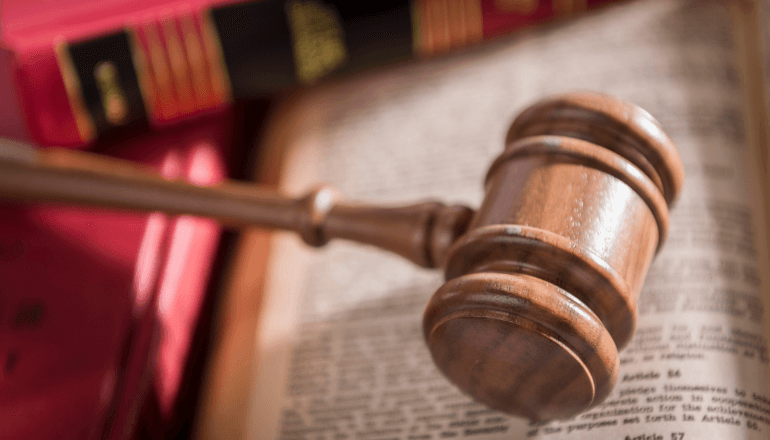Media's Influence on Politics - Analyzing Narratives
Explore how the media shapes political narratives and public opinion. Discover the impact of media on politics and society.

The Power of the Media: Shaping Political Narratives and Public Opinion
In the modern age, the media holds an unparalleled position of influence in shaping political narratives and public opinion. The media's ability to disseminate information rapidly and to a vast audience has transformed the way people perceive and engage with politics. In this blog post, we will delve into the multifaceted role of the media in politics, exploring how it shapes narratives, influences public opinion, and sometimes even blurs the line between information and manipulation.
Information Dissemination
One of the primary functions of the media is to disseminate information. Through newspapers, television, radio, and digital platforms, the media serves as the bridge between political events and the public. It provides citizens with access to a wide array of information, including government policies, political debates, and election updates. This informational role is crucial for a functioning democracy, as an informed citizenry is better equipped to make decisions that align with their interests.
Agenda Setting
The media doesn't just report on political events; it also plays a significant role in setting the political agenda. This is the process by which certain issues and topics receive more attention than others, thereby influencing public discourse and policymaking. Media outlets determine what stories to cover and how much prominence to give them, which can shape the public's perception of what is important in politics.
Framing
Media outlets not only decide what to cover but also how to frame the issues they report on. Framing involves presenting a story in a particular way to influence how audiences interpret it. For example, the media can frame an economic downturn as a result of government mismanagement or as a consequence of global economic trends. The framing choice can lead to significantly different public reactions and policy preferences.
Shaping Public Opinion
Perhaps the most powerful aspect of the media's role in politics is its ability to shape public opinion. When media outlets repeatedly present information or frame issues in a particular manner, it can sway public sentiment. This influence is particularly pronounced in the digital age, where social media platforms and online news sources allow for personalized content delivery that reinforces pre-existing beliefs and biases.
The 24-Hour News Cycle
The rise of the 24-hour news cycle has accelerated the media's impact on politics. In the quest for constant updates and breaking news, media outlets often prioritize speed over depth, leading to sensationalized reporting and a focus on the most attention-grabbing stories. This can distort the public's perception of political events and exacerbate polarization.
The Role of Social Media
Social media has become a powerful tool in shaping political narratives and public opinion. Platforms like Twitter, Facebook, and Instagram allow politicians to communicate directly with their constituents, bypassing traditional media gatekeepers. However, social media can also be a breeding ground for misinformation and echo chambers, where individuals are exposed only to views that align with their existing beliefs.
Media Bias
Media bias, whether real or perceived, is a contentious issue. Some argue that media outlets have inherent biases that influence their reporting, while others believe that bias is often in the eye of the beholder. Regardless, media bias can further polarize society and erode trust in journalism.
Manipulation and Disinformation
In the digital age, the media's role in shaping political narratives has taken a darker turn with the spread of manipulation and disinformation. Foreign actors and political campaigns have used social media to disseminate false information, sow discord, and manipulate public opinion. This poses a significant challenge to the integrity of democratic processes.
The Evolving Media Landscape
The media landscape continues to evolve rapidly, with new technologies and platforms constantly emerging. These changes bring both opportunities and challenges to the media's role in shaping political narratives and public opinion.
Digital Transformation: The advent of the internet and digital media has democratized information dissemination. Anyone with internet access can become a content creator, potentially amplifying diverse voices and perspectives. However, this democratization also means that misinformation and fake news can spread more easily, making it imperative for individuals to be discerning consumers of online content.
Personalization Algorithms: Social media and news websites often use algorithms to personalize content based on user preferences and behaviors. While this can enhance user experience, it can also create filter bubbles and echo chambers, where individuals are exposed only to information that confirms their existing beliefs. This can reinforce polarization and hinder constructive political discourse.
Fact-Checking and Media Literacy: In response to the proliferation of misinformation, fact-checking organizations have gained prominence. Fact-checkers play a crucial role in holding the media accountable and debunking false claims. Media literacy programs are also essential to equip people with the skills needed to critically evaluate information sources and identify unreliable sources.
Transparency and Accountability: Media outlets face increasing scrutiny regarding their transparency and accountability. Audiences demand accurate, balanced reporting, and they are quick to call out instances of bias or sensationalism. This demand for accountability has led to improvements in journalistic standards and ethics.
Citizen Journalism: With the rise of smartphones and social media, citizen journalism has become a powerful force. Ordinary individuals can document events as they unfold and share them with a global audience. While this can provide valuable insights and expose wrongdoing, it also raises questions about the accuracy and credibility of user-generated content.
Media Ownership: The ownership of media outlets can significantly influence their editorial stance and the narratives they promote. Concentration of media ownership in the hands of a few powerful entities can limit diversity of perspectives and impact the media's ability to act as an independent watchdog.
Globalization: In an increasingly interconnected world, the media plays a role not only in shaping national politics but also in influencing global affairs. International news coverage can shape perceptions of other nations and impact foreign policy decisions.
Social Movements and Activism: The media often plays a central role in amplifying the voices of social movements and activists. Platforms like Twitter and Instagram have been instrumental in mobilizing grassroots movements and raising awareness about various social and political issues.
The media's role in shaping political narratives and public opinion remains as vital as ever. While it serves as a cornerstone of democracy by providing information and holding the powerful accountable, it also faces new challenges in the digital age. These challenges include the spread of misinformation, the polarization of society, and questions about media ownership and bias.
As we move forward, it is essential for media organizations to uphold high journalistic standards, prioritize accuracy and impartiality, and maintain transparency and accountability. Likewise, individuals must cultivate media literacy skills, critically evaluate the information they consume, and actively seek out diverse perspectives. In this way, we can harness the potential of the media to promote informed civic engagement and a more robust democracy.
What's Your Reaction?





















